I have a cluster of 3 Cassandra 2.0 nodes. My application I wrote a test which tries to write and read some data into/from Cassandra. In general this works fine.
The curiosity is that after I restarted my computer, this test will fail, because after writting I read the same value I´ve write before and there I get null instead of the value, but the was no exception while writing. If I manually truncate the used column family, the test will pass. After that I can execute this test how often I want, it passes again and again. Furthermore it doesn´t matter if there are values in the Cassandra or not. The result is alwalys the same.
If I look at the CLI and the CQL-shell there are two different views:
Does anyone have an ideas what is going wrong? The timestamp in the CLI is updated after re-execution, so it seems to be a read-problem?
A part of my code: For inserts I tried
Insert.Options insert = QueryBuilder.insertInto(KEYSPACE_NAME,TABLENAME)
.value(ID, id)
.value(JAHR, zonedDateTime.getYear())
.value(MONAT, zonedDateTime.getMonthValue())
.value(ZEITPUNKT, date)
.value(WERT, entry.getValue())
.using(timestamp(System.nanoTime() / 1000));
and
Insert insert = QueryBuilder.insertInto(KEYSPACE_NAME,TABLENAME)
.value(ID, id)
.value(JAHR, zonedDateTime.getYear())
.value(MONAT, zonedDateTime.getMonthValue())
.value(ZEITPUNKT, date)
.value(WERT, entry.getValue());
My select looks like
Select.Where select = QueryBuilder.select(WERT)
.from(KEYSPACE_NAME,TABLENAME)
.where(eq(ID, id))
.and(eq(JAHR, zonedDateTime.getYear()))
.and(eq(MONAT, zonedDateTime.getMonthValue()))
.and(eq(ZEITPUNKT, Date.from(instant)));
Consistencylevel is QUORUM (for both) and replicationfactor 3

